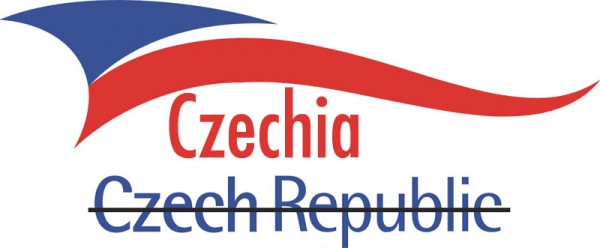 Politicians in the Czech Republic are set to put decades of debate to an end this week by officially announcing a new name for the country: Czechia.
Politicians in the Czech Republic are set to put decades of debate to an end this week by officially announcing a new name for the country: Czechia.
In a meeting with reporters this week, Foreign Minister Lubomir Zaoralek said he supported the move, suggesting that foreigners often mangled his country’s name when he met them abroad. “It is not good if a country does not have clearly defined symbols or if it even does not clearly say what its name is,” Zaoralek said, according to the Czech News Agency.
When the decision does go through, Czechia will officially become the conventional short-form name for the country, while the Czech Republic will remain the conventional long-form name.
The Central European state had been unusual among European countries for not designating a short-form name when it was formed after the breakup of Czechoslovakia in 1993. The other half of that former nation, for example, has the long-form name of the Slovak Republic but is more commonly known by its short-form name, Slovakia. Other states follow a similar formula: Russia is the Russian Federation, Germany is the Federal Republic of Germany, and so on.
Finding a short-form name for the Czech Republic had proved difficult, however. In the Czech Republic itself, the short name “Cesko” is used. That name is said to date to the 18th century, though it came to official use only in the 20th century. Even today, it isn’t fully accepted: According to the Economist, former Czech president Vaclav Havel once said that the word made his “flesh creep.” Some suggested that the name was a reminder of the country’s split from Slovakia, though others said it just sounds nasty: The word is “short and harsh sounding,” one Czech cartographer told Radio Prague in 2004.
Despite the controversy, Cesko forms the basis of many of the short names for the Czech Republic in foreign languages – Tschechien in German, for example, or Tchéquie in French. Meanwhile, the English-language short name has not stuck. Historically, the country had been referred to as Bohemia in English, which translates as “Cechy” in Czech. This name was commonly used up to the 20th century by English-language newspapers. However, it technically refers only to one region of the modern country, and not the two others, Moravia and Silesia.
In 1993, an official Czech body recommended the use of the name Czechia, a word with Latin roots that can be dated as far back as 1841, in the English language, but that word was never given the full support of authorities and it never caught on. Again, some criticized the sound of the word, while others suggested it, too, implied that Moravia and Silesia were left out. Some foreign authorities suggested that the Czechs’ reluctance to use the word “Cesko” had contributed to their own decisions not to use the word. Instead, Czech companies would sometimes use the word “Czechlands” or simply the adjective “Czech” when promoting themselves in English.
In recent years, a movement to finally confirm Czechia as the official short name has gathered pace. President Milos Zeman became a powerful ally of the new short name when he applauded its use during a 2013 state visit to Israel. “I use Czechia because it sounds nicer and it’s shorter than the cold Czech Republic,” Zeman told Shimon Peres, then the president of Israel.
The Civic Initiative Czechia, founded in 1997 to promote the use of the word, now has a Facebook page with tens of thousands of followers and runs an English-language website that answers questions about the use of the word. The campaign argues that the long, boring name of the Czech Republic has hampered the nation and that the “transparency and relative simplicity of a short country name will facilitate its international acceptance.”
WASHINGTON POST

Leave a Reply
You must be logged in to post a comment.